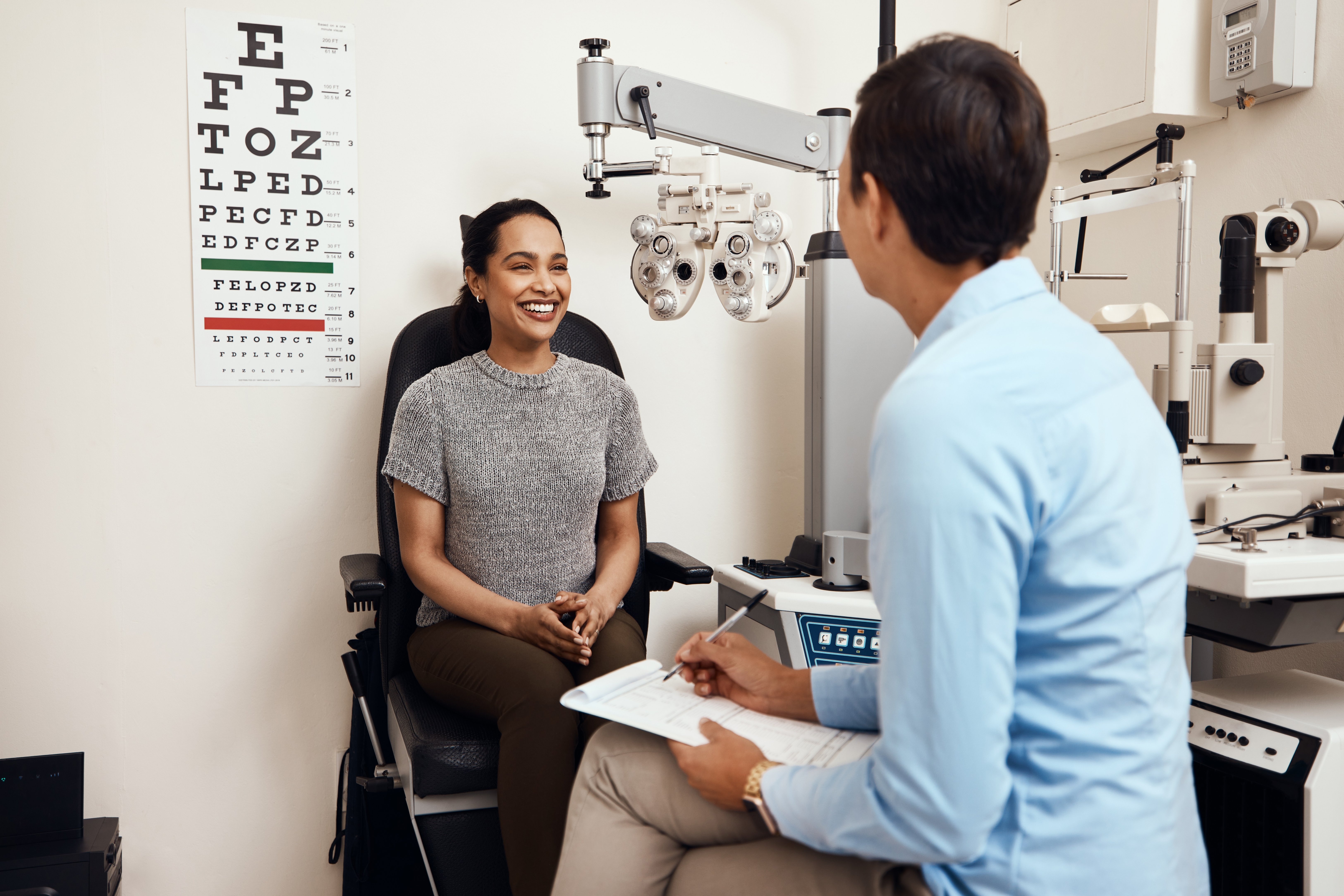
The brain gets used to changes very fast. As a result, it can adapt to your vision issues and accommodate them. It tricks you into thinking you are okay unless you experience a dramatic or sudden loss of vision. Sometimes, you may think you need a new pair of prescription glasses.
Most ophthalmologists and optometrists recommend comprehensive eye exams to help get an in-depth check of your eye and vision health. Read on to learn how often you need to do it to ensure you keep your sight in check.
What Is a Comprehensive Eye Exam?
A comprehensive eye exam is an examination that checks refractive eye errors and also evaluates your overall eye health to screen for eye diseases.
Comprehensive Eye Exam Tests
It typically entails assessments to check your visual acuity and a cover test to evaluate the functioning of each eye. A comprehensive eye exam tests depth perception and ocular motility.
Your eye doctor at Sacramento Eye Consultants will examine your eye shape and check for abnormalities through a slit lamp test. Pupil dilation will enable your eye specialist to check your eye structures for diseases. They will also check for pressure inside the eyes through a glaucoma test.
All comprehensive eye exam tests are painless. Habitually taking the tests allows your eye medic to detect common eye diseases that have the potential to impact your eye health and vision. Identifying diseases like glaucoma, cataracts, macular degeneration, and diabetic retinopathy early helps prevent them from causing further damage to your eye health and vision.
How Often Children Should Get Comprehensive Eye Exams
Perceiving through sight helps children learn. Still, most parents have kids with eye issues that remain untreated. It is vital to note that getting your kids' eyes checked at school will often not suffice.
Eye specialists recommend that children get comprehensive eye examinations at six months. They should have another exam at three years old and before starting school. Eye exams should happen continuously every year until they reach 18 if their eyes remain healthy without any immediate risk. Your eye specialist will recommend frequent eye exams if your child is at high risk.
Factors That Increase Risk for Vision Problems in Children
Prematurity or low weight at birth
Maternal drinking, drug abuse, or smoking while pregnant
Elongated supplementary oxygen use at birth
Genetic vision-affecting conditions or family history of vision problems
Infection inherited from the parent
One eye with vision functionality
How Often Children Should Get Comprehensive Eye Exams
Adults need to make time in their busy schedules to get their eyes checked through a comprehensive eye exam. Those between 18 and 60 years should go for one exam after two years. However, eye specialists advise annual comprehensive eye exams to ensure you get the best care for your eyes.
Adults above 60 years should get their eyes examined annually without fail. Annual comprehensive eye exams are also best for those at risk. Sometimes, your ophthalmologist may recommend more than one comprehensive eye exam annually for some cases.
For more about a comprehensive eye exam, visit Sacramento Eye Consultants at our office in Sacramento or Lincoln, California. Call (916) 915-0300 to book an appointment today.











